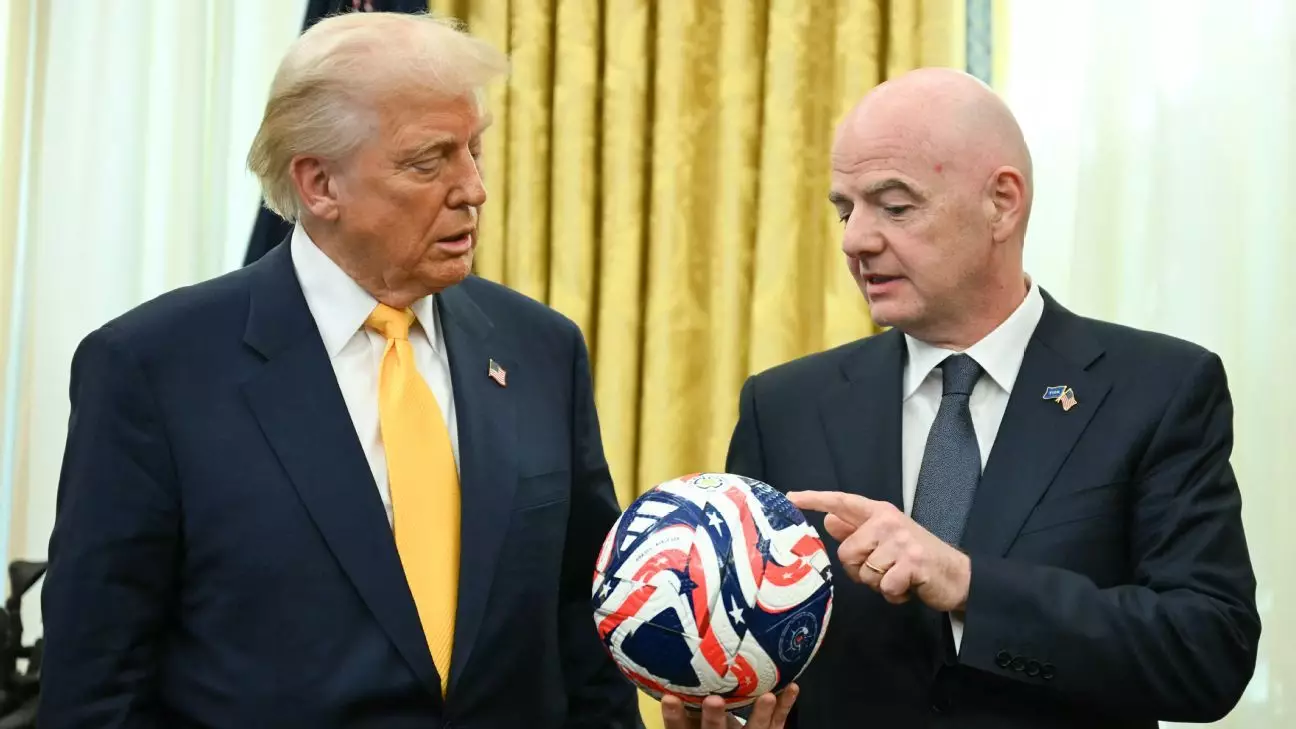As the world prepares for the 2026 World Cup, a momentous event for soccer enthusiasts globally, the air in North America is thick with anticipation. President Donald Trump has initiated a task force that aims to galvanize the federal government’s efforts in orchestrating this grand global tournament. It’s not just a sporting event; it’s a spectacle set against the backdrop of ongoing diplomatic tensions and intricate economic fluctuations. By taking on this challenge, the administration will demonstrate not only its commitment to enhancing the United States’ role in international athletics but also its drive to foster a spirit of unity among North American nations—albeit amidst a complex political landscape.
While other nations may view cooperation as a peaceful means to resolve issues, Trump seems to revel in a more confrontational stance. He boldly stated that “tension’s a good thing,” suggesting that the heat of competition and the ever-present possibility of political discourse could invigorate the tournament. This stance positions the World Cup as much more than just a series of games; it becomes a unique arena where diplomacy and sportsmanship may collide in captivating ways.
The Task Force: A High-Stakes Coordinative Effort
Chaired by Trump himself, the newly formed task force is expected to be a significant pillar of support in navigating the logistical labyrinth that accompanies an event of such grandeur. With matches planned across the three host countries—United States, Canada, and Mexico—the task force will need to ensure a seamless experience for millions of tourists flocking to see the world’s best athletes compete on the biggest stage imaginable. The breadth of the logistical challenge is profound; 104 matches scheduled over a month presents an ordeal akin to organizing three Super Bowls daily.
Notably, the tournament will feature an unprecedented 48 teams, expanding opportunities for nations to showcase their talents—a move that echoes the growing global influence of soccer. But the success of this initiative relies heavily on meticulous planning and heightened security measures, especially given the current climate. FIFA President Gianni Infantino emphasized the importance of guaranteeing that visitors “feel safe, feel happy” during their stay, illustrating the potential strains that might arise in the organism of international sport.
The Broader Implications: Soccer as a Tool of Diplomacy
The World Cup in 2026 functions on multiple levels, serving not only as a hub of sporting excellence but also as a metaphor for the political landscape of North America. Given Trump’s contentious remarks about Canadian Prime Minister Justin Trudeau and his frequent threats regarding tariffs, one could argue that the tournament could serve as a unifying force—or exacerbate existing rifts. Fans from all corners of the globe will gather, trading their national pride for a shared love of the game. In an era marked by divisions, this event could be an unexpected balm for strife, transforming potential disputes into collaborative celebrations.
Yet, there is an inherent risk that comes with such heightened expectations. Conversations surrounding the games could become marred by external political discourse, undermining the spirit of camaraderie that sports so often promises. However, there is hope. The unifying aspect of soccer itself, a sport that thrives on the beautiful challenges of team dynamics and mutual respect, could bridge even the widest divides.
Navigating Uncertainty: The Path Ahead
As preparations for the World Cup heat up, businesses and local communities are poised for the influx of visitors and potential economic boosts associated with the event. However, the environment surrounding the tournament is far from stable. Market fluctuations tied to trade tensions remain a daunting concern. As the U.S. navigates its relationship with neighboring nations, the ability to manage these implications while delivering a memorable sporting event for the world will be a critical undertaking for the Trump administration.
Moreover, the expectation extends beyond soccer; with the Summer Olympics slated for 2028 in California, the scrutiny and pressures will only intensify. The ability to harmoniously manage these significant global events will not only define Trump’s legacy in sports but could also shape the future of North American relations on the world stage.
Thus, as enthusiasm builds around the 2026 World Cup, the reality is that this will be more than just a celebration of soccer; it will be an intricate tapestry woven with threads of politics, economics, and national pride, where each match may echo far beyond the pitch.


Leave a Reply